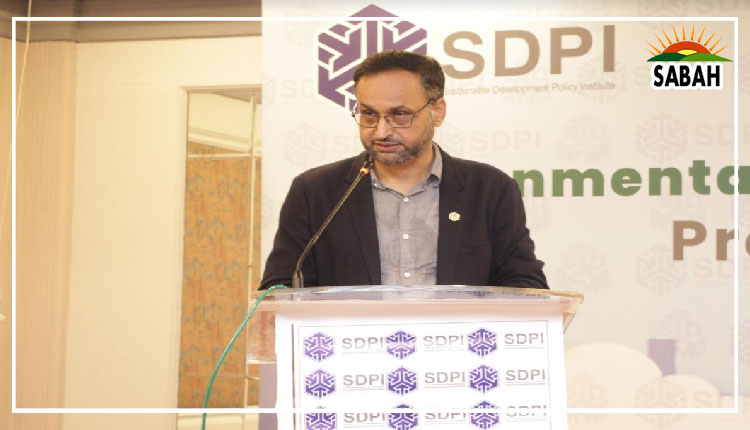Call for strict compliance on environmental laws, ESG principles in banking, corporate sector: Experts
ISLAMABAD/KARACHI, August 05 (SABAH): Ms. Sima Kamil, Deputy Governor, State Bank of Pakistan (SBP) said that ESG is a major concern as financial stability of the financial sector is paramount since banks use public funds to conduct lending operations. It is crucial for banks to be able to measure and mitigate environmental risks.

Speaking at a seminar on, “Environmental, Social and Governance (ESG) practices in Pakistan: Progress, Challenges, and Way Forward” organized by SDPI in Islamabad, Sima Kamal said that along with financial stability, financial inclusion is a crucial concern for SBP for sustainability. The seminar was held to brainstorm ideas to improve ESG index and frameworks to meet the expectations of the stakeholders, and improve corporate governance in Pakistan.
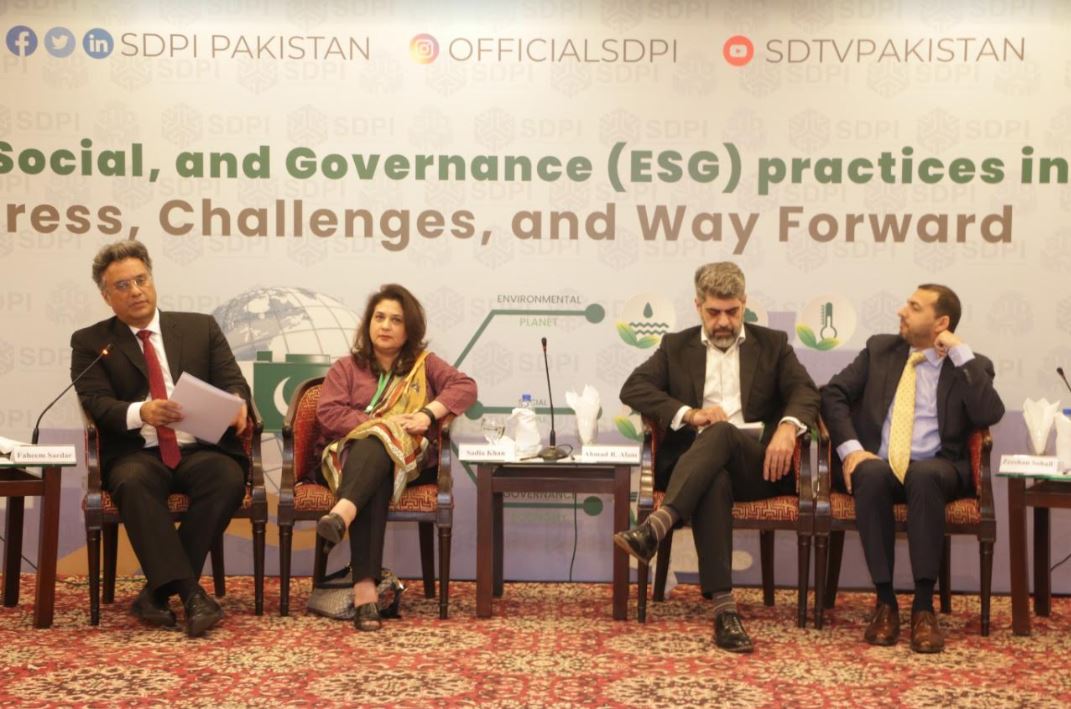
She said that the State Bank of Pakistan issued Green Financing Guidelines in 2017 for banks as a footprint of their potential role for green business facilitation and impact reduction. However, these guidelines are still far for being followed in letter and spirit. She said that there is an increased realization in Pakistan’s financial sector that meeting the ESG standards are pertinent to attract large foreign investors. She emphasized developing green taxonomy to prevent green washing by corporate sector and ensure practice in letter and spirit.
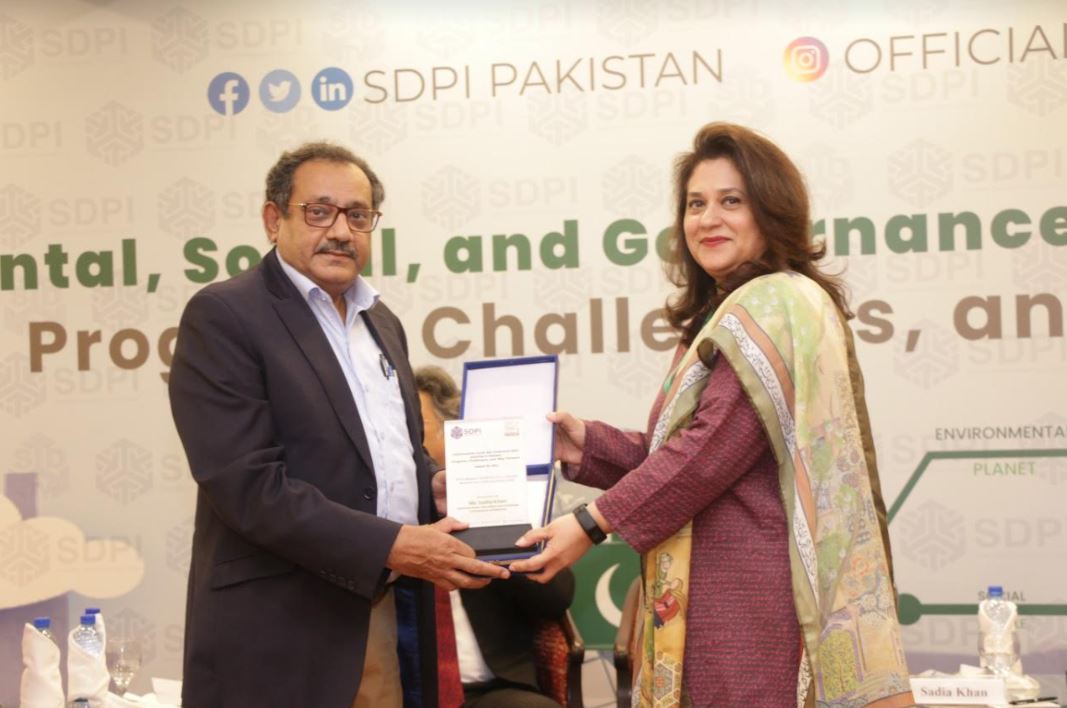
in his welcome remarks Dr. Abid Qaiyum Suleri, Executive Director Sustainable Development Policy Institute (SDPI), said that there is a need for strict compliance on environmental laws and Environmental, Social and Governance (ESG) practices for reaching a win-win solution by involving the private sector and multi-national corporations (MNCs) as part of the solution rather than blaming them entirely as the root cause of the environmental degradation. He said that Pakistan needs a customized version of indexing and marking to facilitate and mainstream ESG initiatives in the country.
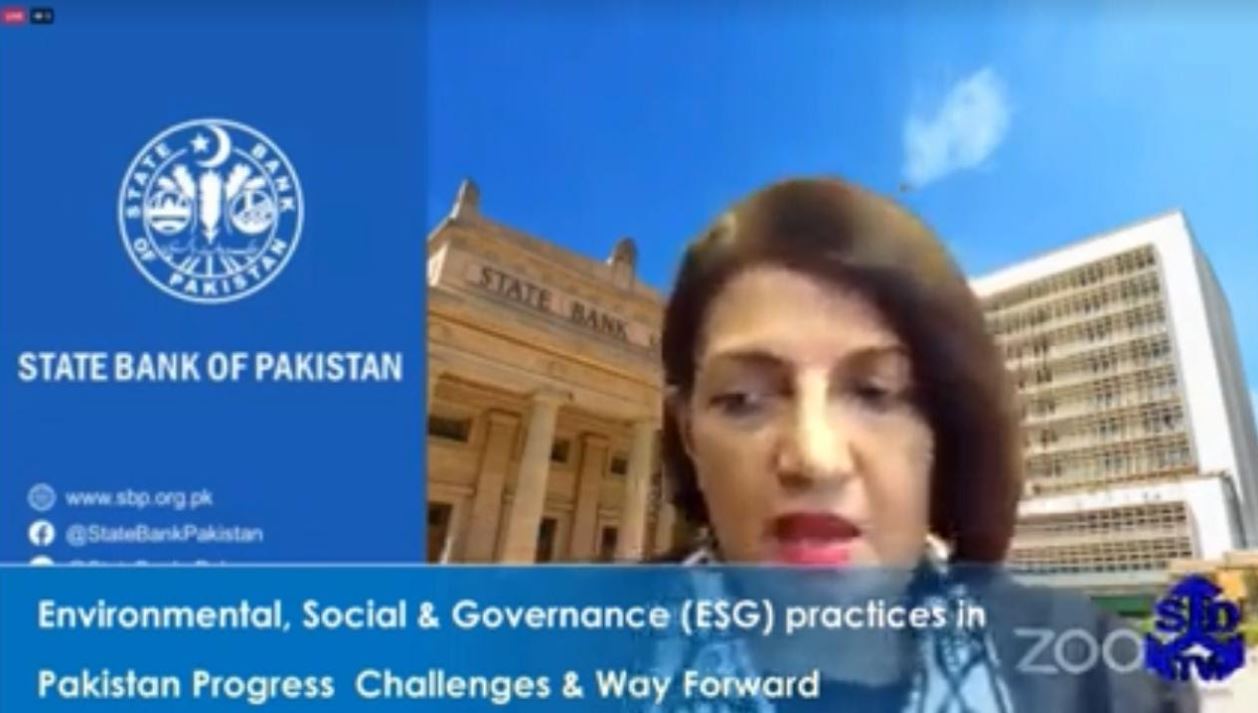
Sadia Khan, Commissioner, Securities and Exchange Commission of Pakistan (SECP) said that the ESG initiatives are gaining greater significance worldwide and the SECP has been at the forefront in addressing these sustainability issues for the corporate sector in Pakistan. As the pace and impact of societal and environmental disruption intensifies, a robust ESG strategy will be critical for businesses to drive reliable performance and resilience. To combat the ESG reporting challenges, strong advocacy, policy dialogues, proactive preparedness and capacity building would be key success factors. The focus of the corporate sector has transitioned from protecting the interest of the shareholders to protecting interests of all stakeholders including employees, creditors, community, and government institutions.
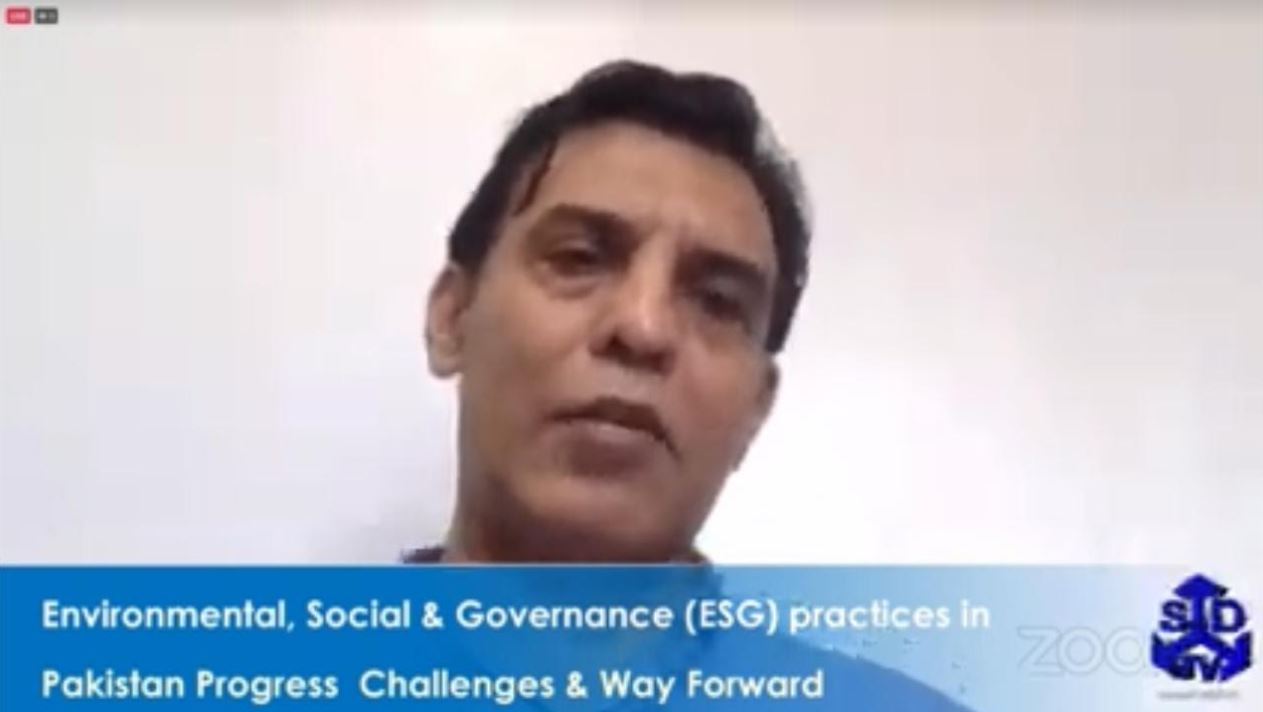
She stressed the need for standardized reporting, measurement and matrices to determine compliance of corporates with ESG principles. She informed that the SECP has issued ESG roadmap for the corporate sector and ESG reporting guidelines are being deliberated and will be issued next year. She urged the need for sensitizing the corporate sector on the significance of ESG, developing guidelines and regulations to create ownership to instill ESG principles in practice. She said that SECP is leading by example by reducing its own environmental footprint, improving gender inclusivity and reporting on ESG principles.
Zeeshan Suhail, Public Affairs Manager, Nestlé Pakistan said that economic pressures have made it a challenge for local organizations to integrate ESG principles into their businesses. He remarked, “Business benefit and positive societal impact must be mutually reinforcing; this is the core of our Creating Shared Value approach to business with ESG and sustainability in the DNA of the company. Global knowledge base and international linkages have helped Nestlé Pakistan bring in-house changes, incorporating ESG principles into practice.”
Rafay Alam, Environmental Lawyer, said that the world is going through extreme climate events and according to UN there is enough carbon in the atmosphere to cause 1.5o C increase in temperature compared to pre-industrial levels. He stressed the need for unprecedented changes in economic and social behavior and strict implementation of environmental laws to reduce the impact of human activities on the environment. He stressed that corporates should not be allowed to get away with unaccountable exploitation of natural resources which is possible through stringent implementation of environmental and labour safety laws in the country.
Moderating the seminar, Senior Economic Advisor, National Security Division, Faheem Sardar said that corporate governance enables better and long-term governance of the corporate sector and ESG principles are integral to protect the environment from degradation, improve the security of employees and people and protect the financial sector from risks.
Associate Research Fellow Kashif Salik in his opening remarks said that environmental degradation, climate change and subsequently caused negative implications on human health are daunting current challenges which can be countered efficiently through ESG principles. He said that ESG approach provides a unique way that ensures environmental sustainability, safeguards social equity, diversity and product management for the public.












